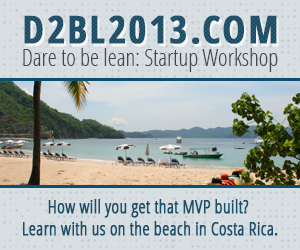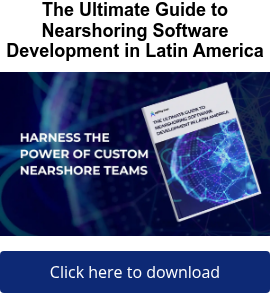 What can the story of FreshBooks teach us about lean startups and agile development? Last week I received an email that got me thinking about that.
What can the story of FreshBooks teach us about lean startups and agile development? Last week I received an email that got me thinking about that.
I use Freshbooks at AgilityFeat for invoicing our customers, and it’s great. It’s an easy way for our team members to track their hours, and for me to convert them into invoices for my clients. It also takes care of sending my clients reminders of when their invoices are past due and generally makes my life better.
FreshBooks to become Cloud Accounting
On the back end, I use the online version of Quickbooks for my broader accounting purposes. So the email I received from FreshBooks founder Mike McDerment last week is definitely targeted towards people like me. He announced that “from this day forward, FreshBooks is Cloud Accounting.”
It sounds like major things are in the works, and that FreshBooks is becoming much more than the great invoicing tool I use it for. Is that change a good thing, or a distraction from their core mission?
Time will tell, but what was more interesting to me from a lean/agile perspective is the story that leads them up to this point. I want to quickly highlight a couple key points made in the email that we can learn from or at least debate.
1) FreshBooks grew from a pain point the founder experienced
Lean Score: Hooray!
From the email, Mike says
“In January 2003 I was running a four person design agency. I was using Microsoft Word to create our firm’s invoices and I was pulling out my hair because Word simply wasn’t built to create good looking invoices efficiently or report on my business. One day I accidentally saved over an old invoice, and something in me snapped – I knew there had to be a better way. Over the next two weeks I coded up a solution for my clients, and eventually we turned that side project into what is now FreshBooks.”
That’s great! He experienced a pain point in his business, and he built the solution himself when he couldn’t find something on the marketplace. Many great businesses are built this way. In addition, unless he is using hyperbole, it sounds like the very first solution he came up with internally only took 2 weeks to build before he could start using it. That definitely fits in the lean/agile methodology for delivering features quickly.
… But how quickly did the product idea get to other customers? Let’s read on …
2) Time to market was 16 months
Lean Score: Boo!
Here’s the next paragraph from the email:
“The road hasn’t been easy. It took over 16 months to bring a product to market. When we launched no one cared and 24 months after starting we had only 10 paying customers and revenues of $99 per month. We moved into my parents’ basement for 3.5 years. But despite all the evidence pointing to our failure, we carried on. Why? We loved our customers, our company and working together, and we’d discovered a passion to serve others.”
So while Mike must have cobbled together a quick solution for himself to use internally, it sounds like FreshBooks next did a very un-lean thing. They decided they had a great product, and they went into a heads-down coding mode for 16 months to deliver it. I’m obviously inferring some things here, but I think I’m on target based on the statement that 24 months later they only had a few customers.
3) They carried on despite poor early sales
Lean Score: Hmmm … Good and Bad lessons here
Here’s where it gets interesting. In that same paragraph Mike is proud of the fact that they continued on despite such poor initial results. Is that a good or bad thing?
In the end, it’s a good thing because they have built a very successful company with a product people like me love. But it sounds like the road was much more painful than it should have been, and that’s the part we can learn from.
I don’t know the details of the rest of their story, so I’m going to have to guess some things at this point.
How did they go from being a failure at 24 months to the success they are now with 5 million users? Surely it wasn’t just perseverance.
If it was because they improved the product based on customer feedback, then this is something they did not have to wait 16 or 24 months to do. A lean startup would have deployed some smaller MVP much sooner, and those lessons could have been learned much sooner and at much lower cost.
So on a lean/agile score card, FreshBooks gets mixed points for carrying on. Presumably they did learn something from their customers, incorporated that feedback, and made the project a success. That’s a good thing, but they lose lean/agile credibility for taking so long to deploy something that they could get feedback on.
Don’t take it personally FreshBooks – we’ve all been there before.
4) Moving to Cloud Accounting
Lean Score: Incomplete
Now it’s time to pull out the crystal ball – is this shift to Cloud Accounting a good or bad thing? From a customer’s perspective, I’m not sure. I’m pretty happy right now with my combined setup of FreshBooks for invoicing and QuickBooks for accounting. I’m not likely to be one of their early converts, because I am slow to change on those sorts of things, and my accountant is slower to change. I had to talk him into trying the online QuickBooks for the first time, and so I’m unlikely to switch all my accounting to FreshBooks until my accountant is comfortable with it.
From a lean/agile perspective, it’s also interesting to speculate. They have started this change in FreshBooks already, and a little under the radar. They started adding in a dashboard that was more like QuickBooks, and tried out some other small features that gently nudged it towards a full accounting solution. So that’s good and definitely lean – deploy a few features and test them before you declare a big strategy shift publicly.

Join AgilityFeat’s Costa Rican Code Commandos on the beach and learn more about best practices in building your startup the lean way!
But now they’ve made a public commitment of this strategy shift – and so that seems much less Lean to me. My gut instinct is that it is now more PR driven, which gets to be dangerous because now there may be a lot of pressure to add in every imaginable payroll and tax accounting feature. That could be a lot of feature creep that distracts them from continuing to serve people like me well. They promise not to do that in the email, but of course it’s still a risk.
Only time will tell if it turns out to be a great strategic move for them or a flop. But either way, it sounds to me like FreshBooks is on its way to becoming an interesting case study for students of lean startups. I just don’t know if it’s a positive or negative case study yet.
What do you think? Do you know more of the back story? Did I misrepresent FreshBooks? I’m curious to hear your thoughts.








